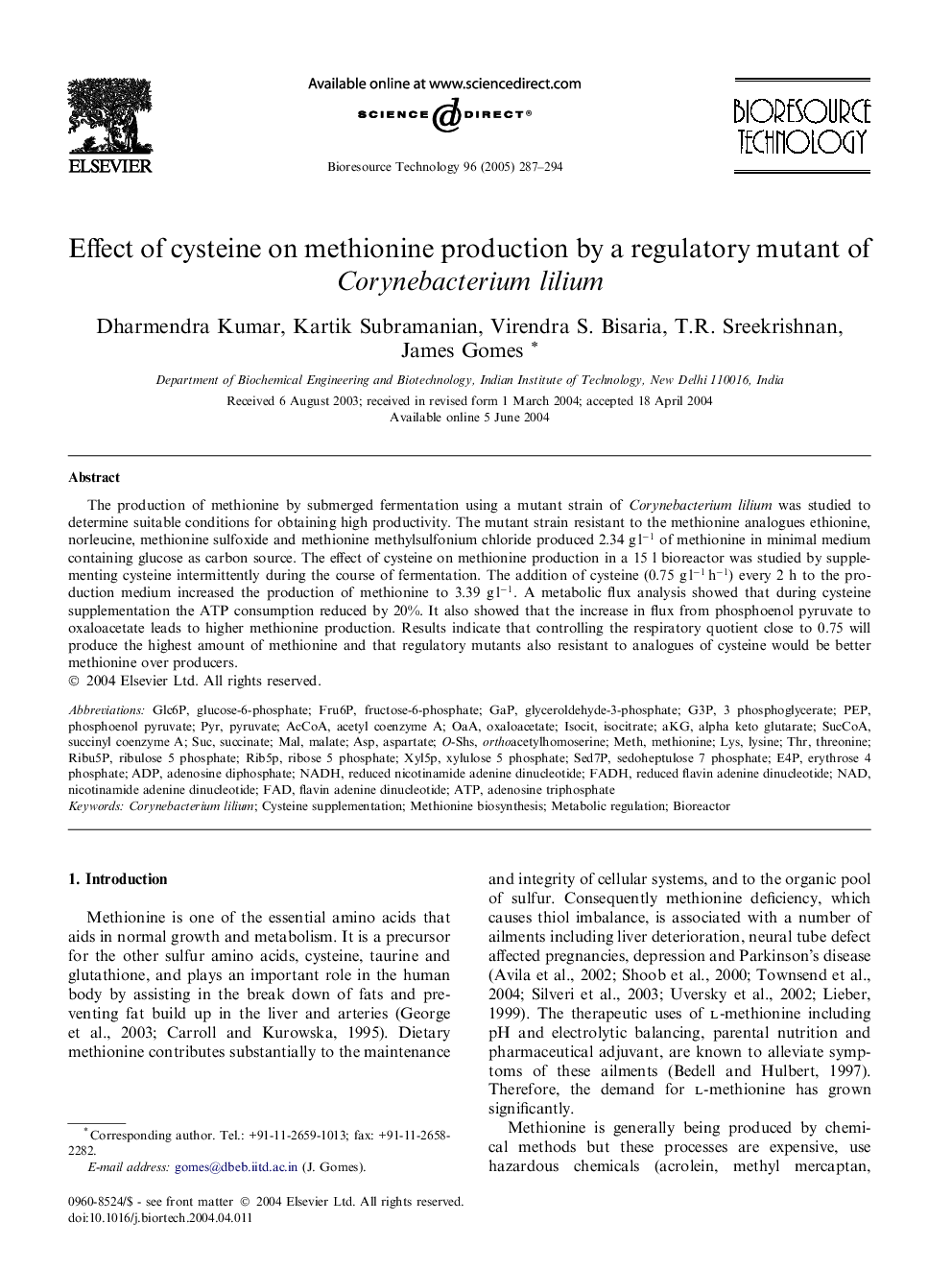| Article ID | Journal | Published Year | Pages | File Type |
|---|---|---|---|---|
| 10396249 | Bioresource Technology | 2005 | 8 Pages |
Abstract
The production of methionine by submerged fermentation using a mutant strain of Corynebacterium lilium was studied to determine suitable conditions for obtaining high productivity. The mutant strain resistant to the methionine analogues ethionine, norleucine, methionine sulfoxide and methionine methylsulfonium chloride produced 2.34 g lâ1 of methionine in minimal medium containing glucose as carbon source. The effect of cysteine on methionine production in a 15 l bioreactor was studied by supplementing cysteine intermittently during the course of fermentation. The addition of cysteine (0.75 g lâ1 hâ1) every 2 h to the production medium increased the production of methionine to 3.39 g lâ1. A metabolic flux analysis showed that during cysteine supplementation the ATP consumption reduced by 20%. It also showed that the increase in flux from phosphoenol pyruvate to oxaloacetate leads to higher methionine production. Results indicate that controlling the respiratory quotient close to 0.75 will produce the highest amount of methionine and that regulatory mutants also resistant to analogues of cysteine would be better methionine over producers.
Keywords
Suc, succinatePEP, phosphoenol pyruvateAcCoA, Acetyl Coenzyme AAsp, aspartateFAD, flavin adenine dinucleotideNADH, reduced nicotinamide adenine dinucleotideOAA, oxaloacetateThr, threonineATP, adenosine triphosphateADP, adenosine diphosphateBioreactorMethionine biosynthesisLys, lysineMal, malateMetabolic regulationNAD, nicotinamide adenine dinucleotidePyr, pyruvate
Related Topics
Physical Sciences and Engineering
Chemical Engineering
Process Chemistry and Technology
Authors
Dharmendra Kumar, Kartik Subramanian, Virendra S. Bisaria, T.R. Sreekrishnan, James Gomes,
